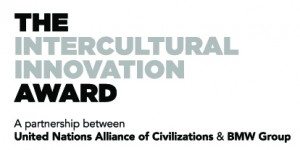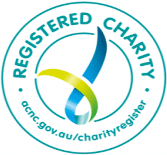Last week I was honoured to give the opening address for the conference: Multiculturalism, Inclusion and Participation – Lessons from the Research at State Library of NSW. The conference was organised by Macquarie University and Ethnic Communities’ Council of NSW. Here is an extract from my speech covering research for racism prevention:
In 2010 I started an organisation called All Together Now, which produced the One Parramatta project. All Together Now is Australia’s only national charity that exists solely to prevent racism. What I’ve learned over these past 4 years is this: the more I learn about multiculturalism in Australia, and interventions to prevent racism and promote social cohesion … I realise that there’s still so much more to learn. It really is a case of “the more you learn, the less you know”.
There’s still so much more to discover. This is why I believe that continuing research about multiculturalism in an Australian context and discovering how we can apply this knowledge to create effective interventions is crucial.
I am a practitioner, not an academic. Yet, I would go so far as to say that if interventions are not based on evidence, then we can’t be clear our work is making a difference. Practitioners in the room: I challenge you to ask yourself “how do I know that the work I do every day is having a positive impact on society?”
Evidence-based practice is a key factor in being able to prove to your stakeholders, to society at large … and to yourself … that we’re not wasting our time or resources. It’s really true that you can’t manage what you don’t measure! And I’m not just talking about counting the number of people who turn up to an event or the number of people who watch one of your films or the number of people who you teach … you also need to know what is the impact on peoples’ lives.
What really matters is your impact, not your intentions.
Without solid research, and I mean everything from the national census through to Adaptive Leadership theory through to the 15-year Challenging Racism Project at the University of Western Sydney, and all the project evaluations that have gone before our work began, like the work of VicHealth for example … without this evidence the One Parramatta project simply would not have existed.
We would not have had any basis on which to come up with the ideas for this intervention. Yet, thankfully all that research is available, and the One Parramatta project has since gone on to win awards – including the Jim Samios Memorial Award this year – for it’s impact in changing people’s behaviour so they now feel empowered to speak up against racism.
So this is why I’m so pleased to be here today, to hear from academics and other practitioners about how they are making a real difference by working together to share research so all of us can learn more about what works.



Definitely agree that measurement of effects on peoples lives is important so that progress can be seen. Without measurement of effects progress cannot be seen. If progress is not seen; then hope dwindles; on the other hand if no progress is seen and there is measurement of effects it is a positive as then changes can be made to ensure progress.
Yes I also think that changing peoples behaviour and attitudes towards people of different cultures is a worthwhile goal.
i have seen in the media more people are standing up against racism in Australia and defending people who are being racially abused. It can start with one person standing up against racism and snowball from there. There has to be a physical demonstration against racism that takes much bravery and strength to end racial abuse in the future and I have seen this has begun by those few brave people who have stood up so far … Hopefully the momentum will continue and racist abuse will not exist so freely as it has in the past.